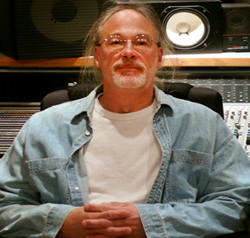
The Process
“During early rehearsals with a new act, I always go out of my way to spend time onstage. It’s the only way to really learn just what is coming off the amplifiers.
“Truth is, you need real musicians actually playing the music to make this a useful exercise (smiles). Normally, I just hang out and listen. Universally, bands absolutely love that I’m interested in what their instruments sound like.
“Also, I always try to get a separate room with some isolation to mix in. I recommend using some big loudspeakers/monitors because if the band decides to come in and listen, you’ll need something that sounds impressive.
“If they listen to mixes through nearfields on the console, they won’t get the full effect of what you’re trying to do live. We’re not making recordings here, we’re trying to a) learn the material, and b) demonstrate what it should sound like live.
“I prefer large full-range boxes like (Clair) S4s because they fit comfortably through doorways and are easy to stack; however, it may be simpler to use a few of the loudspeakers you’ll actually be using on tour. In the past I’ve used a few (JBL) VerTec 4889s and 4880 subs, and (L-Acoustics) dV-DOSCs and subs.
“The key is generating a big sound with enough low end. If you’ve ever listened to high-powered loudspeakers at close range (at a professional level), you understand why I do this. It’s simply not any fun listening to small loudspeakers. There’s a difference between listening and hearing, and I prefer to hear. This puts me in the right frame of mind.
“One time working with a new client, the principals came in to have a listen after the first night of rehearsals. I was a bit nervous but had confidence in my mixes. I rolled the tape, and they looked at each other and said ‘this sounds great.’ Presenting a decent mix on big loudspeakers really helped to earn their confidence and alleviated any questions as to what it would sound like during a show.
“To this day, that particular client has never said a word to me audio-wise, ever. No suggestions to turn this up or down. Nothing. They trust me, and I think it all comes from having made a good impression on our first night together.”
Survive The First Show
“Sometimes just getting through the first show takes some ‘calm nerves.’ I’ve had tours where after four weeks of band rehearsals, the first show was in a stadium in a major market. In one instance, my very first time with the band in front of the PA was the afternoon of the first show. The band came out and sound checked two tunes, and I was asked, ‘Are you OK?’ My response: ‘I think so?’ What else was I going to say?
“This was a far cry from the cozy confines of a mix room at rehearsals; more like ‘OK, here we go…’ A very high-profile act, with all of the media in the known universe on hand and celebrities galore crawling all over the front of house platform. Not an ideal circumstance for a first show with a new act, but one we must be prepared to manage if called upon.”
Danny Abelson enjoys writing about the subjective nature of reinforced sound and the human factors that are so critical to a successful event.
